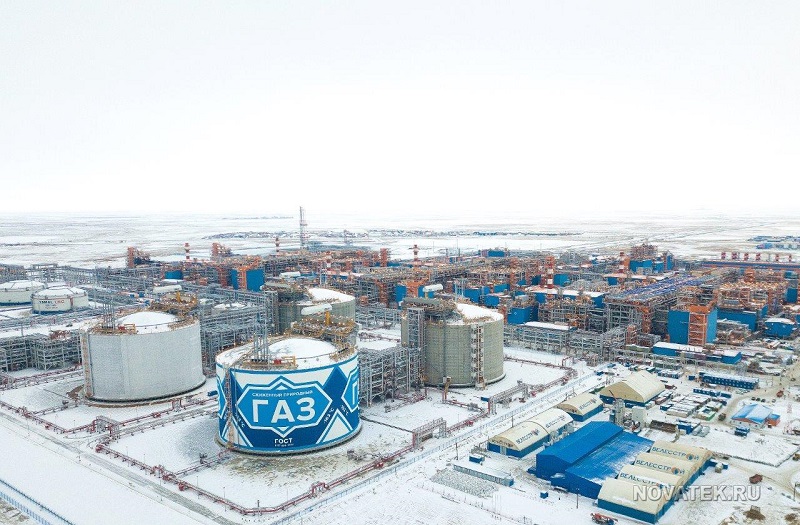
Russia Lawmaker Suggests Taxing Yamal LNG Over Challenging Gazprom
Russia's flagship liquefied natural gas project, privately-owned Yamal LNG, is challenging state gas giant Gazprom in its core European market, and should either be taxed or have a limit put on its sales there, a lawmaker said.
MOSCOW (Reuters) — Russia's flagship liquefied natural gas project, privately-owned Yamal LNG, is challenging state gas giant Gazprom in its core European market, and should either be taxed or have a limit put on its sales there, a lawmaker said.

After years of denying there was a risk of a Russian gas rivalry in Europe, Gazprom said in its Eurobond prospectus last month: "There can be no assurance that the LNG produced by this project (Yamal LNG) ... or other similar projects that could be launched ... in Russia ... will not compete with our pipeline gas."
Pavel Zavalny, the head of the energy committee in Russia's lower house of parliament, or Duma, is the loudest voice to date to comment on direct competition between Russian gas suppliers in Europe - something Moscow has said would never happen.
Yamal LNG shipped 33.5 million tons of LNG to Europe between 2018 and 2020, Refinitiv Eikon data showed, compared to 8.8 million tons sent to Asia.
Led by Russia's top private gas producer Novatek and launched in late 2017, Yamal LNG had focused on Asian markets via the Northern Sea Route (NSR) in Russia's Arctic. NSR allows delivery times to be cut to some 20 days from nearly 40 for cargoes going to Asia via the Suez Canal.
Novatek is also supplying LNG to Europe via NSR. Supplies to Asia are limited if thick ice blocks the route. LNG exports are not taxed and Yamal LNG was granted other breaks which Zavalny said are undermining state revenues.
"This idea ... contradicts (state) goals to increase Russia's share on the global gas market," Novatek said in a statement to Reuters on Tuesday.
Leonid Mikhelson, Novatek's chief executive and co-owner, told reporters last week it was impossible to regulate the LNG market by law.
"The LNG market is moving to mirror the oil one - one day a cargo goes here and another there," he said, according to the Interfax news agency.
Zavalny's Duma committee plans to propose that the government considers either taxing LNG to make exports to Europe less attractive or to set a limit on volumes and prices if the super-cooled gas is delivered to the same clients as Gazprom's.
"Pipeline gas was in fact substituted by LNG ... the (Russian) budget system is getting less taxes as LNG is enjoying preferences," he told Reuters. "There should be no direct rivalry, otherwise the budget is losing out."
